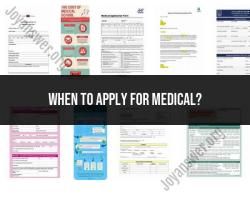What are the duties of an oral surgeon?
Oral surgeons, also known as oral and maxillofacial surgeons, are dental specialists who focus on the surgical treatment of various conditions affecting the mouth, jaw, face, and neck. Their duties are extensive and encompass a wide range of surgical and diagnostic procedures. Here is a comprehensive overview of the duties of an oral surgeon:
Diagnosis and Assessment:
- Oral surgeons evaluate patients' medical and dental histories.
- They conduct thorough clinical examinations and diagnostic tests, such as X-rays and CT scans, to diagnose conditions and develop treatment plans.
Tooth Extraction:
- One of the most common duties is the extraction of teeth, including impacted wisdom teeth or teeth damaged by trauma or decay.
Dental Implants:
- Oral surgeons place dental implants to replace missing teeth. This involves surgically implanting artificial tooth roots into the jawbone.
Corrective Jaw Surgery (Orthognathic Surgery):
- Oral surgeons perform corrective jaw surgeries to treat conditions like misaligned jaws, overbites, underbites, and facial asymmetry.
Facial Trauma Repair:
- They treat facial injuries resulting from accidents, sports-related injuries, or assaults. This may involve repairing fractured facial bones or soft tissue injuries.
Cleft Lip and Palate Repair:
- Oral surgeons perform surgeries to repair congenital conditions like cleft lips and palates, which involve the separation and reconstruction of facial structures.
Oral Pathology and Biopsy:
- They diagnose and treat oral diseases and conditions, including oral cancer, through biopsies and surgical interventions.
TMJ Disorder Treatment:
- They manage temporomandibular joint (TMJ) disorders that affect jaw joint function, often using non-surgical and surgical techniques.
Obstructive Sleep Apnea Treatment:
- Oral surgeons can perform surgeries to treat sleep apnea by addressing airway obstructions, such as removing tonsils or repositioning the jaw.
Bone Grafting:
- They perform bone grafting procedures to augment the jawbone for dental implant placement or to correct bone defects resulting from trauma or disease.
Facial Cosmetic Surgery:
- Some oral surgeons offer elective cosmetic procedures like rhinoplasty (nose surgery) and facial rejuvenation surgeries, in addition to their reconstructive work.
Sedation and Anesthesia:
- They provide various levels of sedation and anesthesia to ensure patient comfort and safety during surgical procedures.
Collaboration with Other Specialists:
- Oral surgeons often collaborate with other healthcare professionals, such as orthodontists, dentists, and plastic surgeons, to provide comprehensive care to patients.
Postoperative Care:
- They manage the postoperative care of patients, including monitoring healing, prescribing medications, and providing instructions for recovery and wound care.
Continuing Education:
- Oral surgeons stay updated with the latest advancements in their field through continuing education and training to provide the best care for their patients.
Private Practice or Hospital-Based Work:
- Oral surgeons may work in private practice or hospitals, and their duties can vary based on their practice setting.
It's important to note that oral surgeons receive extensive education and training, often completing dental school and a specialized residency program in oral and maxillofacial surgery. They play a vital role in the overall health and well-being of their patients, addressing a wide range of oral and facial conditions through surgical and non-surgical means.












